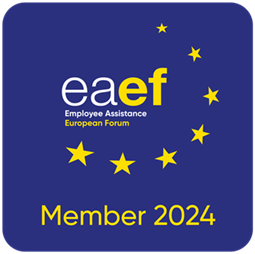In today’s competitive business landscape, employee well-being is no longer just a perk, it’s a strategic imperative. But managing a strong Employee Assistance Program (EAP) can be complex, especially if your EAP software operates in isolation. Here’s where integrating your EAP with existing HR systems comes in – unlocking a streamlined approach to employee well-being.
The Silo Problem: Challenges of Disconnected Systems
Many organizations struggle with disparate HR systems. Employee data is scattered across platforms, leading to:
- Data Duplication: Manual data entry across systems is time-consuming and prone to errors.
- Inaccurate Reporting: Fragmented data hinders accurate reporting on EAP usage and trends.
- Limited Functionality: Disconnected systems restrict a holistic view of employee well-being.
Bridging the Gap: Benefits of Integration
Integrating your EAP software with existing HR systems like payroll and benefits platforms offers a wealth of benefits:
- Streamlined Workflows: Automatic data transfer eliminates manual entry, saving time and resources.
- Enhanced Reporting: Consolidated data provides a comprehensive view of program usage and employee well-being trends.
- Improved User Experience: Single sign-on allows employees to access EAP resources effortlessly from within their familiar HR portal.
- Targeted Interventions: HR data can help tailor EAP outreach to specific employee groups with the most need.
Integration in Action: Streamlining the EAP Journey
Here’s how integration can enhance the EAP experience:
- Enrollment and Onboarding: New hires can automatically enroll in the EAP during onboarding, streamlining the process.
- Targeted Resources: Based on employee data (e.g., location, job role), the system can recommend relevant EAP resources.
- Confidentiality and Security: Integration ensures data is securely transferred and employee privacy remains protected.
Beyond Streamlining: The Ripple Effect of Integration
The benefits of integration extend beyond administrative efficiency. They contribute to a larger well-being ecosystem:
- Increased EAP Utilization: Removing access barriers encourages employees to engage with the program.
- Data-Driven Decision Making: Consolidated data informs effective program development and resource allocation.
- Culture of Well-Being: Integration reinforces a message that employee well-being is a priority across all HR functions.
Taking the Next Step: Integrating for Success
Thinking about integrating your EAP with HR systems? Here are some key considerations:
- Compatibility: Assess the compatibility of your current EAP software and HR platforms.
- Data Security: Ensure robust security measures are in place to protect sensitive employee data.
- Implementation Plan: Develop a clear implementation plan with well-defined timelines and resources.
Investing in Integration: A Win-Win for Everyone
Integrating your EAP with HR systems is a strategic investment in employee well-being. It fosters a more streamlined program, empowers data-driven decision making, and ultimately creates a work environment where employees feel valued and supported.
Ready to unlock the full potential of your EAP? Explore integration options and take the step towards a more holistic approach to employee well-being.



